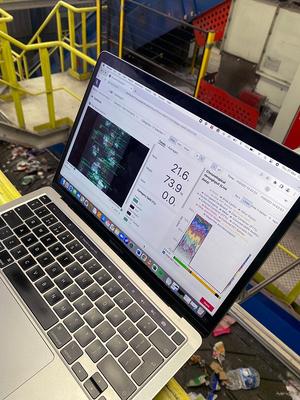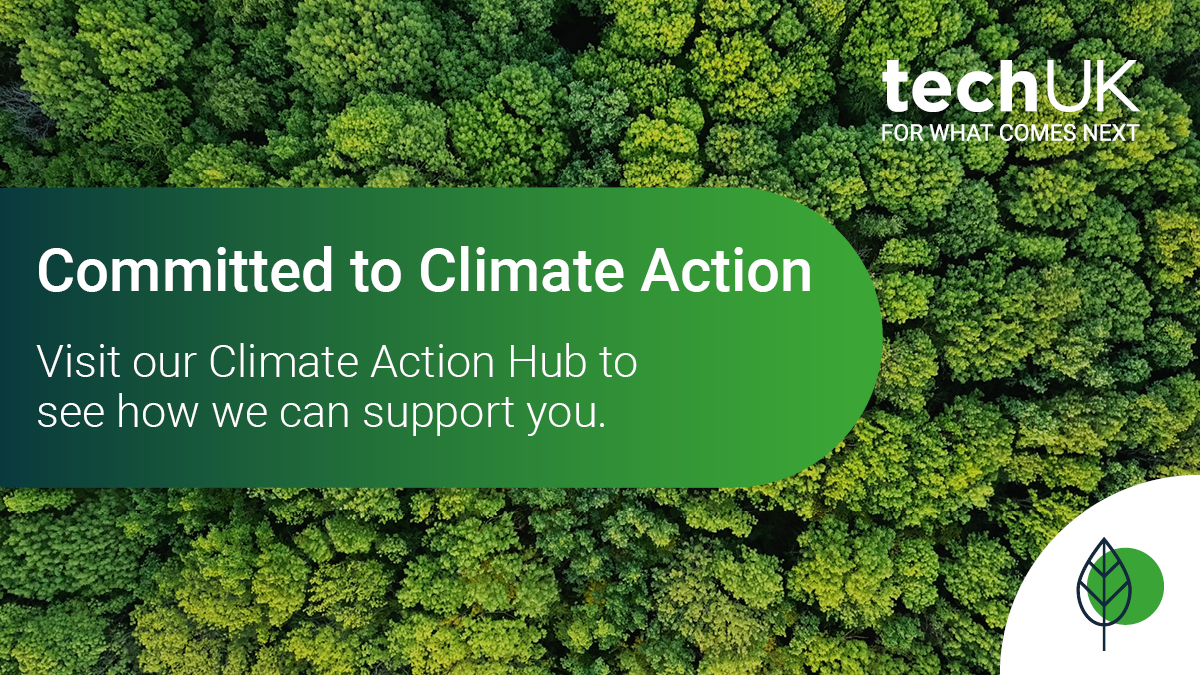AI for recycling - opportunities and risks on the journey to net zero (Guest blog from Greyparrot)
Greyparrot is a UK startup that uses AI computer vision to digitise waste flows, automatically improving the way recyclables are captured and reused. We believe and have seen first hand the opportunity that AI presents in tackling major challenges like climate change and ensuring we reach net zero. At Greyparrot, we were driven to act after seeing the sheer scale of the waste crisis. Today, only 9% of all the plastic we produce gets recycled. Meanwhile, over 90% is simply dumped, burned or mismanaged.
With the UK government committed to the target of achieving net-zero emissions across the economy by 2050, the role of recycling cannot be overstated. In the UK, recycling is responsible for 25% of the country’s total emission cuts over the last 20 years. What’s more, sorting and recycling helped avoid 45 MtCO₂eq emissions in 2018. This was achieved not only by methane control and diverting waste from landfills, but also by diverting organic materials to composting and anaerobic digestion.
On a global scale, recyclables save over 700 Mt in CO2 emissions - a figure which is set to increase to 1 billion tons by 2030, approximately the same as Japan’s entire carbon footprint today.
Yet, despite increased attention and an uptick in funding in recent years, recycling remains one of the least digitised infrastructures, relying heavily on manual labour to sort waste. Given the rate at which digital technology has advanced in the last decade, the slow pace of change in the sector is startling to say the least.
So, what’s stopping recycling from getting the digital refresh it so desperately needs?
Ultimately, the problem stems largely from a lack of data.
As it stands, there is little to no visibility on waste composition at every stage of the waste flow, as less than 1% is audited by hand. In turn, manually-collected, biased material composition data leads to substantial inefficiencies and a lack of transparency.
Clearly, the need for innovation in the sector is urgent. After all, recycling underpins the move towards a circular economy, which looks to design out waste and pollution, keep products and materials in use and regenerate natural systems.
That’s why, at Greyparrot, we provide an AI Waste Recognition System that automates the monitoring, auditing and sorting of recyclables at scale. The system involves a Monitoring Unit that is retrofitted on top of moving conveyor belts in sorting facilities, as well as a live dashboard that displays waste composition information in real-time.
Further, Greyparrot provides a Vision Integration (API) which allows for seamless integration of this data feed into any third-party software and sorting machines.
A key application of the Greyparrot system is to continuously monitor the quality of material in MRFs (Material Recovery Facilities) and PRFs (Plastics Recovery Facilities.) At ARA AG, Austria’s largest collection and recycling company for packaging waste, our AI solution is already proving pivotal in guaranteeing the quality of secondary materials they trade.
Felix Badura, General Manager of DiGiDo ARA commented:
“We have implemented Greyparrot at one of our sorting partner plants to monitor the purity of the output material close to the bale press. Given the challenging environment, we were positively surprised by the classification outcome. The real-time dashboard gives us an unprecedented amount of insight into the quality of the produced output fractions.”
As with many AI systems, there is a risk that the product may automate jobs. But three factors counterbalance the risk.
Firstly, there is a stark labour shortage in this sector.
Secondly, in a traditional industry, automation has proven to heighten productivity across markets; not doing the same in the UK could alternatively risk losing jobs to international firms.
Finally, sorting waste by hand is fraught with a myriad of health and safety risks due to the hazardous materials that end up in the recycling stream.
With AI automation, we believe there is a real opportunity to transform the waste and resources sector, to move it away from reliance on guesswork to a data-driven approach that truly yields results. Thanks to the availability of live AI composition data, recycling facilities can upskill workers to operate automated systems and take informed action based on real-time data.
Beyond the recycling facilities, waste producers and regulators now have access to previously unavailable granular waste data. Finally, that information is playing a leading role in shaping packaging and policy decisions - as it should.
Greyparrot is proud to work alongside pioneers in recycling to contribute to net zero, by investing our energy, expertise, and passion to increase transparency and automation in recycling. At commercial scale, by 2030, we estimate that we will reduce emissions by 119 MTCO2e per year.
We believe the future is in a fully circular economy. To achieve this, we need to rethink and reinvent how recycling works.



techUK - Committed to Climate Action
techUK provides opportunities for members to showcase climate tech innovation. Members are invited to speak at events, contribute to reports, write blogs, run webinars, and take part in podcasts that support their environmental action. We strive to amplify the sector’s commitment to sustainability. To discuss how we can support you, please visit our Climate Action Hub and click ‘contact us’.




